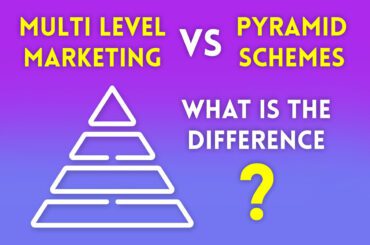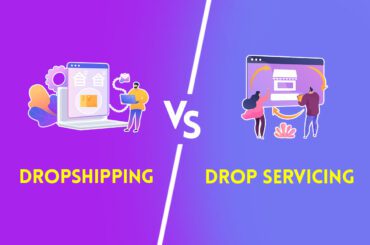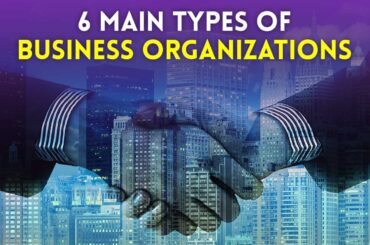The biggest problem for businesses is the noticeable drop in productivity while transitioning from regular staff to freelancers. Also, is there enough of a difference to warrant picking one over the other? The main difference between an employee and a Difference Between Employee and a Freelancer is solely for the employer, while the freelancer can work for more than one employer at the same time. A new door has been opened by the rise of the freelance economy for people all over the world who want to make a living but don’t want to be tied down to any one company.
Freelancing opportunities are proliferating across all sectors, with an increasing number of businesses embracing the idea by recruiting both independent contractors and full-time workers. As much as 90% of large businesses, according to Forbes, consider freelancers indispensable. Are you struggling to understand the Difference Between Employee and Freelancer? That’s what we’re here for. This article will discuss the many types of workers and the distinctions between them, such as freelancers vs. regular employees. Both freelancers and full-time workers have their benefits and drawbacks, which we will discuss.
Advantages:
Freelancing has a ton of benefits, but here are just a few of the most important ones:
- Flexibility
- Hours are not set in stone.
- Vacation days to use as you see fit.
- Earnings grew
- The learning curve is steeper
Disadvantages:
This should pique your interest, right? It’s not that simple! There are several drawbacks to consider before making the jump, though.
- It’s impossible to maintain a steady workflow.
- Having no reliable source of income
- Isolation
- Problems balancing work and personal obligations
The employer must define the employment status of each worker depending on the nature of their connection with the company. In addition, the tax treatment of employees and independent contractors is somewhat different. There are three main criteria that are used to determine what kind of work relationship it is. Controlling one’s finances, one’s conduct and one’s relationships are the aforementioned factors.
What follows is a summary of the most salient distinctions between freelancers and regular 9-to-5ers. Constancy: a freelancer completes a project within an agreed-upon time frame. Freelancers are not required to sign any long-term contracts with their clients since they are considered independent contractors. Permanent workers, on the other hand, are required to commit to the terms and circumstances of their job by signing a legally binding contract. Therefore, full-time workers have more stability in their employment situation and greater stability over the long term than do independent contractors.
Freelancers and employees vary significantly with respect to employment taxes. Employers are responsible for handling workers’ tax withholdings prior to releasing paychecks. Wages are reduced by amounts owed to the government, including those for Social Security and Medicare. Employee, freelancer, and consultant. These three terms are often used interchangeably, but they actually describe the Difference Between Employee and Freelancer. However, those who are self-employed have two sets of taxes to cover: personal income tax and a tax on company profits.
Freelancers and employees can differ substantially in terms of benefits. They are not eligible for paid vacation or personal time off. Freelancers do not qualify for benefits like health insurance and retirement plans, but full-time workers do. Terms of payment: When working as a freelancer, you get to choose your own pricing. An independent contractor may charge more per hour than a permanent worker, but their services are needed just temporarily. Hire Difference Between Employee and Freelancer, and a freelancer when you want to outsource some work. A yearly pay and benefits package is often offered by employers.
Freelancers and regular workers often keep different hours. Freelancers are not constrained to the 9-5 schedule of a traditional company but instead may choose their own hours. Freelancers’ schedules and productivity levels are completely independent of the company. Discrepancies in pricing: It’s a fact that some freelancers charge exorbitant rates, sometimes in the hundreds of dollars per day range. Does it indicate it’s more expensive to hire a contractor than an employee? Even if this could be the case sometimes, freelancers often have their assignments and work terms determined by their employers. Independent contractors are, therefore, highly recommended for projects that may benefit from a larger degree of creativity and experimentation. Employees need a significant amount of a company’s financial resources for pay, benefits, and other advantages.
This means that there may be significant price variations between independent contractors and full-time workers. Cut down on expenses: Having employees that can work from home may greatly cut down on the expense of renting an office space and paying employees. Furthermore, businesses are not obligated to provide extra perks and advantages to employees (like retirement benefits, health insurance, social security, etc.). Consequently, the entire cost falls significantly, even if the freelancer is costly.
Businesses often hire freelancers on a project-by-project basis because it lowers their risk. Since freelancing often isn’t a permanent position, any party may end the contract if the freelancer doesn’t provide satisfactory results. Freelancers and workers at will may take advantage of this in states that provide them with legal protection from some employment regulations. Therefore, hiring freelancers reduces the potential downsides of a major staff shakeup for businesses.
Getting hired is easy: Hiring independent contractors has never been easier than with the proliferation of online freelancing marketplaces. Freelancers in the fields of information technology, marketing, design, administrative support, teaching, writing, accounting, and related fields may be found even on a tight budget. The method is more efficient and cost-effective than conventional recruiting practices. In addition, there are no borders that prevent you from working with talented freelancers from anywhere on the globe.
Professional quality: With so many people offering freelancing services these days, it’s more important than ever to provide work of the highest caliber if you want to attract customers. Freelancers want their work to be so good that their customers would want to spread the word about them.
Network: Freelancers with experience tend to have a wide range of valuable contacts. A freelancer with a large and active network may do a lot of work for you at a low rate. If you engage a content writer, for instance, they may be able to recommend an experienced graphic designer for your work. A pool of top-tier professionals from whom to choose: The majority of today’s freelancers are experts in their fields with many years of expertise. So, choose carefully, and you may find up working with a freelancer who can provide real value to your company.
Inadequate supervision might make it difficult to build a cohesive organizational culture among self-directed employees. Freelancers may be available for lengthier engagements, but they often aren’t fully involved in the success of your business. Earning as much money as possible is their first priority. Lack of accessibility and lack of response: Freelancers’ schedules and time zones may not always be compatible with your own. Freelancers don’t have to show up to work at a certain hour as regular workers do. They choose to work when it is most convenient for them. Therefore, it is not a good idea to use freelancers for time-sensitive work that needs them to be available on demand.
While hiring freelancers may have a reduced initial cost, mismanaging your remote workforce might wind up costing you more money in the long term. This necessitates the hiring of a project manager to maintain tabs on all employees, whether they are permanent or temporary. If you and your freelancers don’t keep in close contact, your projects will stall.
Employing People Full-Time: Some Benefits and Drawbacks
There is a correlation between having full-time workers and increased loyalty to the company. They feel secure in their employment and benefit from a variety of employer-provided services (health insurance, retirement plans, etc.). In addition, workers give their all when they know their employers care about them as people and their professional development. Although it may be costly to hire an employee at first, the investment is ultimately profitable. Workers that are content in their jobs are highly driven and productive. Therefore, a contented staff may be a powerful engine for business growth.
Working more than 40 hours each week: To be considered full-time, an employee’s weekly hours of labor must add up to at least 40. A boring work schedule may be detrimental to the mental health and productivity of workers. Increased emphasis on staff education and development: To remain competitive, businesses must continually spend on staff training and development. Regularly occurring expenses like new hire onboarding, orientation, and training are a fact of doing business.
For contractors and other part-time workers, this is not necessary. Due to an increase in labor expenses, There is a correlation between a full-time worker’s high hourly wage and their lengthy stay with the company. If you’re going to invest in a full-time worker, you want to be sure they’re worth it. If not, you’re paying too much for a resource that’s not contributing anything to the business.
5 faqs and answers related to the Difference Between Employee and Freelancer
Which is preferable, freelancing or working for someone else?
Freelancing is not only about having a schedule that works for you and being your own boss. Having access to employer-provided benefits like health insurance, 401(k) plans, sick days, and paid vacation time is a major perk of full-time work (and a major negative of performing gigs).
Who earns more, Freelancer or Employee?
While freelancers theoretically work for themselves, they do so under the guidance of customers. Freelancers often juggle many jobs at once for a wide variety of clients who pay for varying degrees of dedication to each project.
Can a government employee do freelancing?
No, you cannot work on any freelancing assignments. While on the government’s payroll, you are prohibited from accepting compensation from non-governmental sources. However, this restriction does not apply to works of art, literature, or science.
Is it okay to freelance while employed?
Is it feasible to juggle a full-time job with freelance work? It depends on which types of obligations your customers demand. Still, many individuals take up freelancing in addition to their full-time work, whether they’re shouting loudly about it or not.
Can government personnel have two jobs?
Generally speaking, the answer is yes, government workers are allowed to work several jobs. It is not against the law to hold down a second job while employed by the federal government. However, you cannot “engage in outside work that clashes with your official duties”. Subpart H of Title 5 of the Code of Federal Regulations serves as the legal foundation for these rules.
Conclusion
We trust that your understanding of contractors vs. employees has been much improved after reading this. Difference Between Employee and Freelancer, A freelancer is someone who sells their talents or professional services to any employer without a long-term contract or commitment. Even while both freelancers and full-time employees have their advantages and disadvantages, firms might potentially increase production by understanding when to utilize one over the other. Whether or not a candidate is employed depends on the demands of the firm and how much the company is ready to spend on them. Freelancers are self-employed people who choose their own working hours and place of employment. Even though freelancers don’t work for a single company, they nonetheless contract out their services to a wide variety of businesses and individuals. In addition, self-employed individuals must pay income tax.












